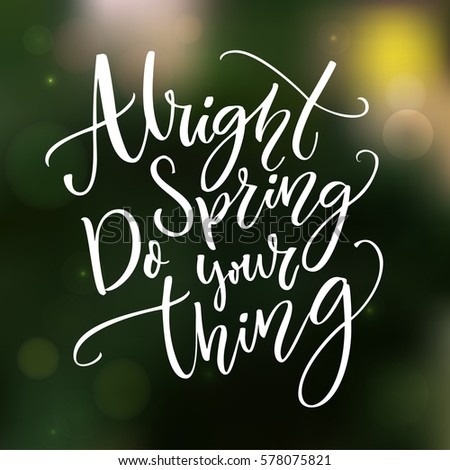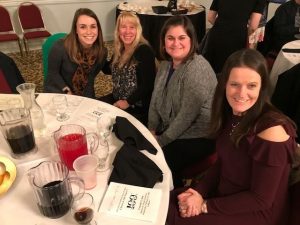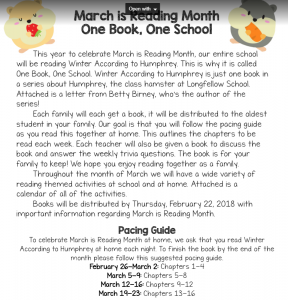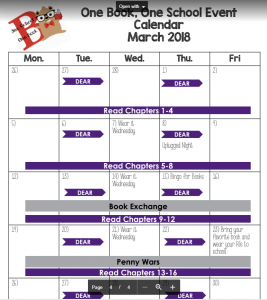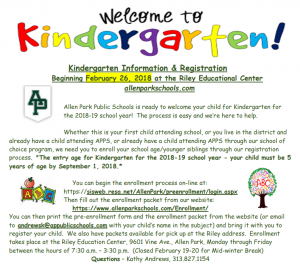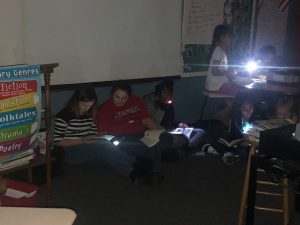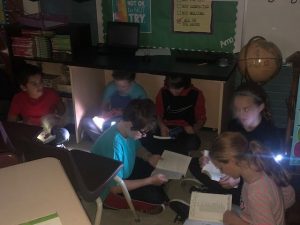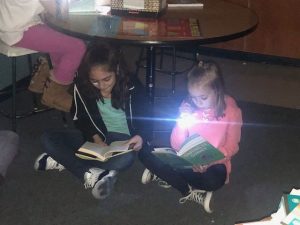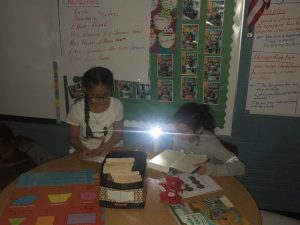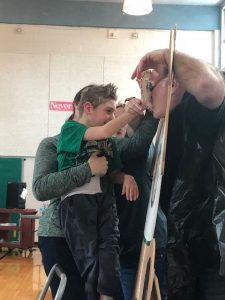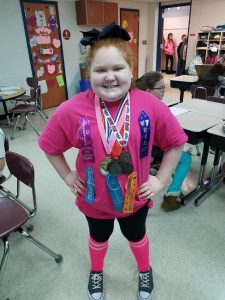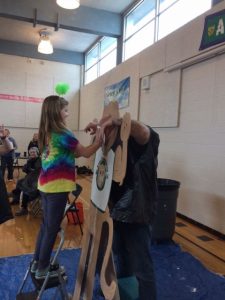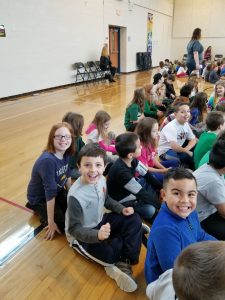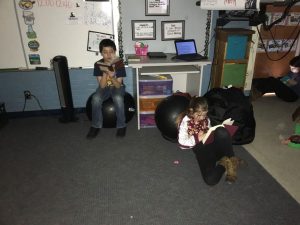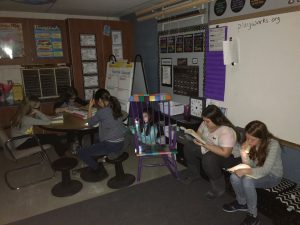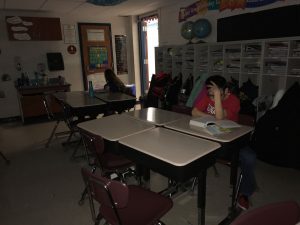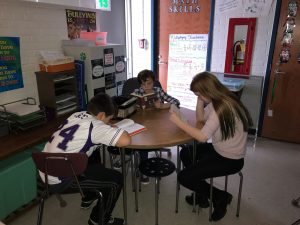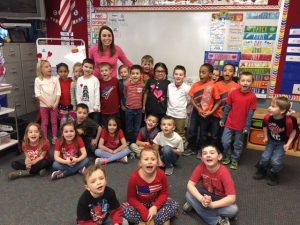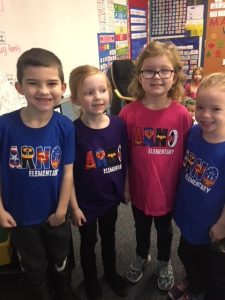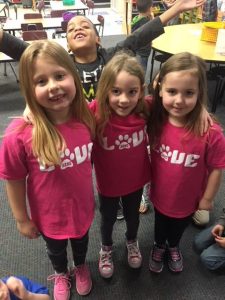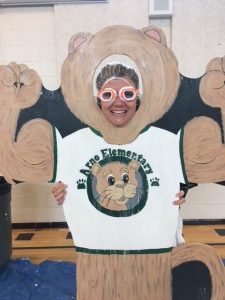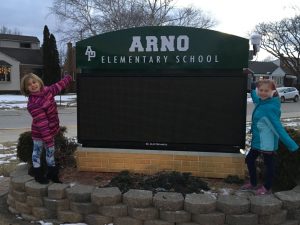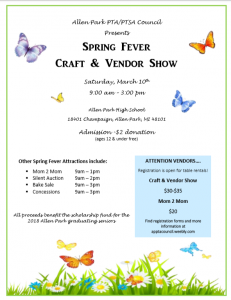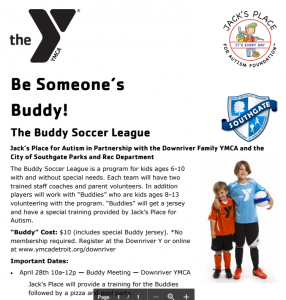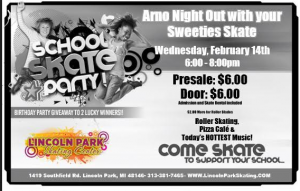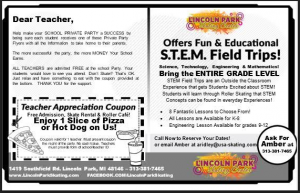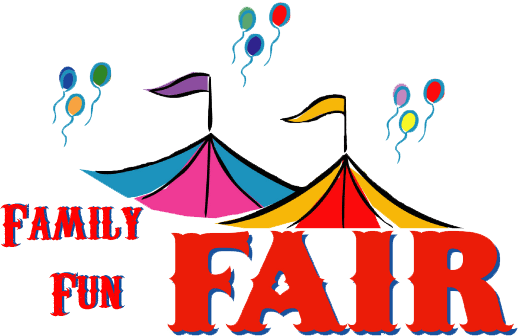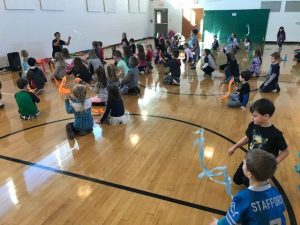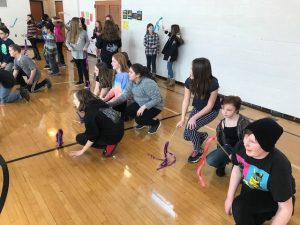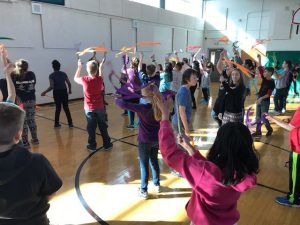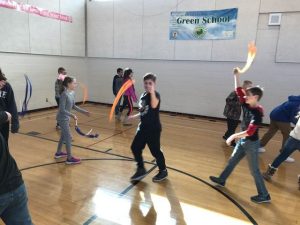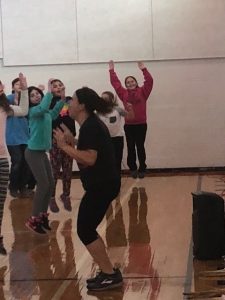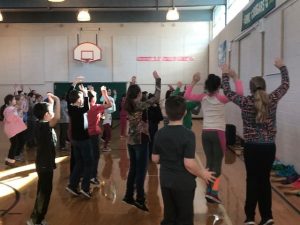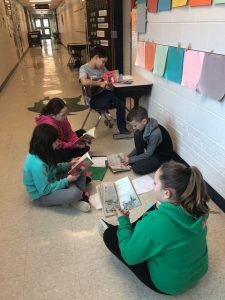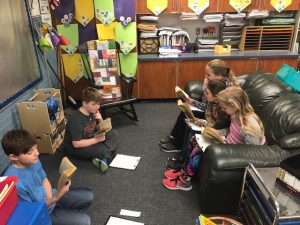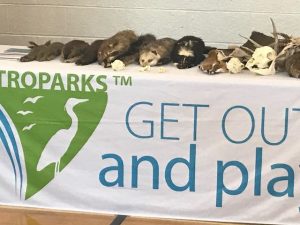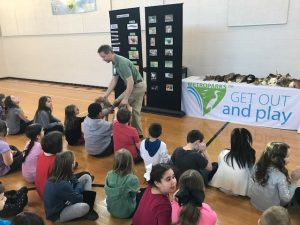Congratulations Nickie- Outstanding Educator!
Coming soon to Arno…
Feb 26
No events
Feb 27
SIP Team meeting all day
Feb 28
3rd grade U of M
MARCH is Reading month activities start per calendar
March 1
3rd Grade U of M
PTA Meeting 6:30
March 2
3rd grade U of M
Gordon Miller building visit 10:00
PBIS Reward
March 5
No events
March 6
No events
March 7
Higgins obs 11:15
March 8
DiCarlo obs 9:30
Andersen obs 11:15
March 9
End of Second Semester
Early Dismissal 11:40- Teacher PD p.m.
Sent to Parents: You may start enforcing it next week

Pokemon Cards
Pokemon cards have been increasingly been an issue in the classroom causing some disruptions as well as some conflict. I am asking that all students keep their Pokemon cards at home for the rest of the school year to prevent any further issues in the building. Thank you for your help in this matter
March is Reading Month
March is fast approaching and we are gearing up for our One Book, One School theme for this year’s reading month activities. The calendar is attached below and contains all the info you will need to know about all the happenings here at Arno, and what should be going on at home. Please let your teacher know if you clarification on anything.
march calendar-2d72z12
Flyer for Book Exchange 2018-2cao9rh
From the PTA
Happy Friday!
The PTA had quite an evening on Wednesday night at our Founders Day Dinner!
Congratulations to all of our Winners!
Outstanding Educator- Nickie Stanley
Distinguished Service Award- “Sharon” Shannon Mihalik
Outstanding Support Personnel- Tim Tanksley
Outstanding Program- Fun Run (Julie Hegedus, Nicole Falconer-Atkinson, Jeff Mouchet, Shannon Mihalik)
Business Partner- ATS Advisors- Donna Genaw
Our next meeting will be on Thursday, March 1st! Come out and join us! We will be voting on what we should do with our funds and taking nominations for our Executive Board Positions. If you’re interested in running, please attend!
Our Spring Fever Craft Event is coming up soon! If you would like to donate an item or volunteer some of your time, please consider signing up!
http://www.signupgenius.com/
Enjoy your weekend!

Founder’s Day Celebration
The annual Founder’s Day awards celebration took place this past Wednesday as our amazing winners shined! Congratulations to all of our award winners this year- you represent the very best of our Arno Cougars!!
2018 PTA Founders Day Winners
Outstanding Educator – Nikki Stanley
Outstanding Support Personnel – Tim Tanksley
Distinguished Service – Shannon Mihalik
Outstanding Program – Fun Run (Jeff Mouchet, Julie Hegedus, Nicole Atkinson & Shannon Mihalik)
Business Partner – ATS Tax Preparation, Allen Park
Title 1 Blog
We would to inform you of our new Title I blog brought to you by Mrs. Gorski, our Title I teacher. Title I is a federal program that gives dollars to school with higher populations at-risk students. We are a School-wide school for service, which means our whole population qualifies to benefit from services, parent meetings, resources, etc.
http://mrsgorski.edublogs.org/
Kindergarten Registration Information 2018-19
Kindergarten Enrollment Flyer 2018-19 School Year-xy45zu

MARK YOUR CALENDAR – KINDERGARTEN ROUND UP
MONDAY, MAY 7, 2018 – 6:30 p.m.
at Arno, Bennie and Lindemann Elementary
Spirit Week Wrap Up…
Techy
Free Icons & Images for Google Docs and Slides
The Noun Project is a popular source of free icons and images. The Noun Project collections include thousands of public domain, Creative Commons, and royalty-free icons. Learn more about the Noun Project in the short video below.
The Noun Project now offers Add-ons for Google Docs and for Google Slides. Like other image search Add-ons, the Noun Project’s Google Docs and Google Slides Add-ons let you search for images and insert them into your projects without having to open a new tab or browser window.
Applications for Education
If your students need simple images for illustrations, diagrams, or multimedia projects, the Noun Project is a good resource for them to browse through.
Use Google Sheets to Create Online Bingo Boards With Pictures
Flippity is one of my favorite Google Sheets Add-ons because it gives you direct access to sixteen templates that you can use to create games, progress trackers, and random name selectors. One of Flippity’s most popular templates, the Bingo template, was recently updated to allow you to include pictures in your Bingo games.
Flippity’s Bingo template is easy to follow. Just the complete the steps listed hereand you’re ready to publish your game. You can print game cards to distribute to your students or you can have them play online.
It is important to note that in order to use images in the Flippity Bingo templatethe images must be hosted online and publicly accessible. A host like Flickr is ideal for this purpose. Google Drive doesn’t work for this purpose. Likewise, any site that blocks hotlinking will not work for this purpose.
A VALUABLE PERSPECTIVE
One Teacher’s Brilliant Strategy to Stop Future School Shootings—And It’s Not About Guns
Here’s how one schoolteacher takes time each week to look out for the lonely.
And that’s how I ended up standing at a chalkboard in an empty fifth-grade classroom while Chase’s teacher sat behind me, using a soothing voice to try to help me understand the “new way we teach long division.” Luckily for me, I didn’t have to unlearn much because I’d never really understood the “old way we taught long division.” It took me a solid hour to complete one problem, but I could tell that Chase’s teacher liked me anyway. She used to work with NASA, so obviously we have a whole lot in common.
Afterward, we sat for a few minutes and talked about teaching children and what a sacred trust and responsibility it is. We agreed that subjects like math and reading are not the most important things that are learned in a classroom. We talked about shaping little hearts to become contributors to a larger community—and we discussed our mutual dream that those communities might be made up of individuals who are kind and brave above all.
And then she told me this.
Every Friday afternoon, she asks her students to take out a piece of paper and write down the names of four children with whom they’d like to sit the following week. The children know that these requests may or may not be honored. She also asks the students to nominate one student who they believe has been an exceptional classroom citizen that week. All ballots are privately submitted to her.
And every single Friday afternoon, after the students go home, she takes out those slips of paper, places them in front of her, and studies them. She looks for patterns.
Who is not getting requested by anyone else?
Who can’t think of anyone to request?
Who never gets noticed enough to be nominated?
Who had a million friends last week and none this week?
You see, Chase’s teacher is not looking for a new seating chart or “exceptional citizens.” Chase’s teacher is looking for lonely children. She’s looking for children who are struggling to connect with other children. She’s identifying the little ones who are falling through the cracks of the class’s social life. She is discovering whose gifts are going unnoticed by their peers. And she’s pinning down—right away—who’s being bullied and who is doing the bullying.
As a teacher, parent, and lover of all children, I think this is the most brilliant Love Ninja strategy I have ever encountered. It’s like taking an X-ray of a classroom to see beneath the surface of things and into the hearts of students. It is like mining for gold—the gold being those children who need a little help, who need adults to step in and teach them how to make friends, how to ask others to play, how to join a group, or how to share their gifts. And it’s a bully deterrent because every teacher knows that bullying usually happens outside her eyeshot and that often kids being bullied are too intimidated to share. But, as she said, the truth comes out on those safe, private, little sheets of paper.
As Chase’s teacher explained this simple, ingenious idea, I stared at her with my mouth hanging open. “How long have you been using this system?” I said.
Ever since Columbine, she said. Every single Friday afternoon since Columbine. Good Lord.
This brilliant woman watched Columbine knowing that all violence begins with disconnection. All outward violence begins as inner loneliness. Who are our next mass shooters and how do we stop them? She watched that tragedy knowing that children who aren’t being noticed may eventually resort to being noticed by any means necessary.
And so she decided to start fighting violence early and often in the world within her reach. What Chase’s teacher is doing when she sits in her empty classroom studying those lists written with shaky 11-year-old hands is saving lives. I am convinced of it.
And what this mathematician has learned while using this system is something she really already knew: that everything—even love, even belonging—has a pattern to it. She finds the patterns, and through those lists she breaks the codes of disconnection. Then she gets lonely kids the help they need. It’s math to her. It’s math.
All is love—even math. Amazing.
What a way to spend a life: looking for patterns of love and loneliness. Stepping in, every single day, and altering the trajectory of our world.
Glennon Doyle Melton writes the popular blog momastery.com and is the author of Carry On, Warrior: The Power of Embracing Your Messy, Beautiful Life.
